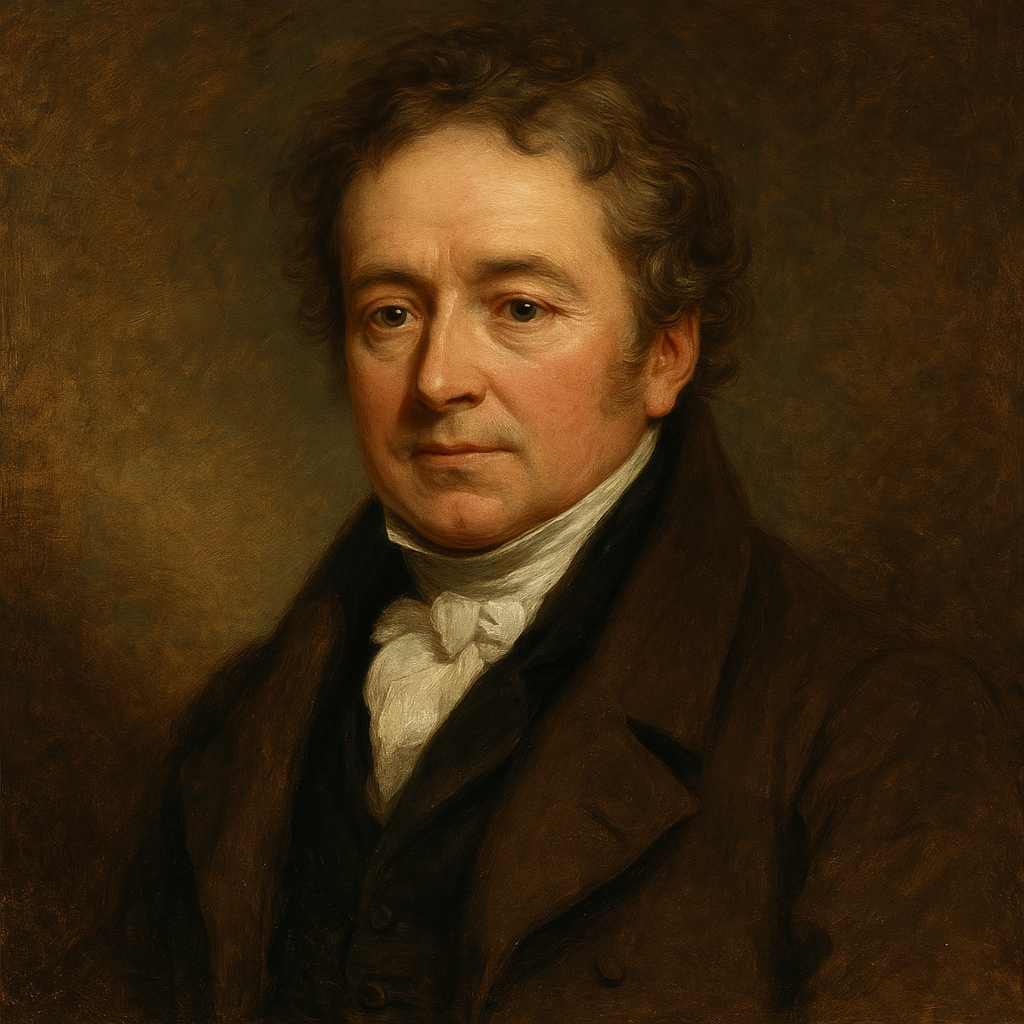1 Poems by Thomas Campbell
1777 - 1844
Thomas Campbell Biography
Thomas Campbell, born in Glasgow on July 27, 1777, emerged as one of the most celebrated poets of the early nineteenth century, though his star has dimmed considerably in contemporary literary discourse. The youngest of eleven children born to Alexander Campbell, a merchant who had experienced financial reversals, and his wife Margaret, the poet's early life was marked by both privilege and precarity – a tension that would later inform his artistic sensibilities.
Despite his family's reduced circumstances, Campbell received an excellent education at the Glasgow Grammar School and later at the University of Glasgow, where he distinguished himself in both classical studies and poetry. His translations from Greek, particularly of Aeschylus, earned him academic accolades and established his reputation as a prodigious talent. These early exercises in classical translation would profoundly influence his later poetic style, characterized by its measured elegance and rhetorical polish.
Campbell's first major poetic success came at the remarkably young age of twenty-one with the publication of "The Pleasures of Hope" (1799). This work, written in heroic couplets that showcased his masterful command of the form, captured the political and social zeitgeist of the era. Its meditation on human progress, punctuated by passionate denunciations of slavery and oppression, resonated deeply with readers and established Campbell as a voice of liberal humanism in an age of revolution.
During a sojourn in Germany in 1800-1801, Campbell witnessed the aftermath of the Battle of Hohenlinden, an experience that profoundly affected his worldview and inspired some of his most powerful martial poems. "Ye Mariners of England" (1801) and "The Battle of the Baltic" (1805) represent the pinnacle of his achievement in this vein, combining patriotic sentiment with genuine humanitarian concern. These works, along with "Hohenlinden" itself, demonstrate Campbell's ability to transmute the immediacy of witnessed events into poetry of lasting significance.
While his longer works secured his reputation, it was perhaps in his shorter lyrics that Campbell achieved his most perfect expressions. "Lord Ullin's Daughter" and "The Exile of Erin" display a mastery of the ballad form, while "The River of Life" showcases his talent for philosophical metaphor. His technical virtuosity is evident in the careful modulation of rhythm and sound, creating effects that would influence later Victorian poets.
Campbell's career as a working man of letters included significant prose works and editorial duties. His editorship of the New Monthly Magazine (1821-1830) placed him at the center of London's literary culture, though some critics argue this work diverted his energies from more important poetic pursuits. His "Specimens of the British Poets" (1819), with its biographical and critical notices, represents a major contribution to literary history and criticism, demonstrating his scholarly acumen and critical judgment.
The poet's personal life was marked by tragedy and financial anxiety. His marriage to Matilda Sinclair in 1803 produced two sons, but was shadowed by poverty and illness. The death of his wife in 1828 and of his younger son in 1837 cast a pall over his later years. Yet Campbell remained active in public life, serving as Lord Rector of Glasgow University (1826-1829) and founding the University of London, where he championed broader access to education.
Campbell's poetic output declined in his later years, though he continued to write and revise until his death in Boulogne in 1844. His final works, while showing occasional flashes of his earlier brilliance, never achieved the heights of his youthful productions. Yet his influence on nineteenth-century poetry was considerable, particularly in his technical innovations and his fusion of classical restraint with romantic sensibility.
Modern critics have begun to reassess Campbell's significance, noting his role in bridging the Augustan and Romantic traditions. His best work combines neoclassical precision with romantic feeling, creating a unique poetic voice that deserves renewed attention. While he may not have achieved the sustained excellence of Wordsworth or the volcanic genius of Byron, Campbell's finest poems display a technical mastery and moral seriousness that merit their preservation in the canon of English poetry.
The poet's legacy extends beyond his purely literary achievements. His advocacy for Polish independence and his support for educational reform demonstrate how thoroughly he embodied the ideal of the engaged intellectual. Though his reputation has fluctuated since his death, Thomas Campbell's contribution to English poetry and cultural life remains significant, offering modern readers a window into the literary and social transitions of the early nineteenth century.
This text was generated by AI and is for reference only. Learn more
Username Information
No username is open
Everything is free to use, but donations are always appreciated.
Quick Links
© 2024-2025 R.I.Chalmers (V2Melody).

All music on this site by R.I.Chalmers (V2Melody) is licensed under a Creative Commons Attribution-NonCommercial 4.0 International License.
Attribution Requirement:
When using this music, you must give appropriate credit by including the following statement (or equivalent) wherever the music is used or credited:
"Music by R.I.Chalmers (V2Melody) – https://v2melody.com"
Support My Work:
If you enjoy this music and would like to support future creations, your thanks are always welcome but never required.
Thanks!


